No products in the cart.
Great news! The Canada Post strike is over! We’re resuming deliveries to Canada!
Excellente nouvelle ! La grève de Postes Canada est terminée ! Nous reprenons les livraisons vers le Canada !
Great news! The Canada Post strike is over! We’re resuming deliveries to Canada!
Excellente nouvelle ! La grève de Postes Canada est terminée ! Nous reprenons les livraisons vers le Canada !

Grippostad Rhino spray nasal solution 0.1% bottle 10 ml
$16.97
Free Worldwide Shipping
Estimated delivery:
14 - 21 days
Categories: Cold and flu
Brand: Stada
Grippostad Rhino nasal spray with xylometazoline quickly relieves nasal congestion, eases breathing, and reduces swelling in colds and allergic rhinitis.
Pharmacological properties
Pharmacodynamics. Xylometazoline is an imidazoline derivative, an α-adrenergic sympathomimetic. It directly stimulates α-adrenergic receptors and constricts blood vessels. When applied topically, it reduces swelling of the nasopharyngeal mucosa and hyperemia. It restores the patency of the nasal passages and facilitates nasal breathing by decongesting the mucous membrane and improving the drainage of secretions.
The drug begins to act after 5-10 minutes, and the effect lasts for several hours (on average 6-8 hours).
With intranasal administration, the amount of the agent absorbed may sometimes be sufficient to cause systemic effects, for example, on the central nervous system and cardiovascular system.
Pharmacokinetics. When applied topically, xylometazoline is practically not detected in blood plasma (plasma concentration is below the detection limit).
You can buy Grippostad Rhino nasal spray 0.1% through the MIS Pharmacy 9-1-1 website at an attractive price.
The current price for the medication is indicated in the catalog of the MIS Pharmacy 9-1-1 website.
Indication
Swelling of the nasal mucosa in case of a cold and rhinorrhea with a large amount of liquid mucus (vasomotor rhinitis), allergic rhinitis.
Application
Grippostad Rhino is intended for nasal use.
Grippostad Rhino 0.05% nasal drops. Children aged 1 to 5 years (under adult supervision) 1-2 drops in each nostril up to 1-2 times a day if necessary, but not more than 3 times a day.
Children aged 6 to 11 years (under adult supervision) 2-4 drops in each nostril up to 2-3 times a day if necessary, but not more than 3 times a day.
Grippostad Rhino 0.1% nasal drops, Grippostad Rhino 0.1% nasal spray. Adults and children over 6 years old – 1 drop (1 spray) in each nostril up to 3 times a day as needed.
The dose is determined depending on individual sensitivity and symptoms of the disease. Grippostad Rhino is not recommended for use for more than 5 days. Before starting a new course of treatment, you should take a break for several days.
Do not exceed the recommended dose.
You should consult a doctor regarding the duration of treatment.
In case of chronic rhinitis, treatment should be carried out under medical supervision due to the risk of thinning of the nasal mucosa.
Contraindication
Hypersensitivity to the components of the drug. “Dry” inflammation of the nasal mucosa with crusting (dry rhinitis). transsphenoidal hypophysectomy or history of transsphenoidal hypophysectomy, as well as surgical interventions with exposure of the dura mater. angle-closure glaucoma. simultaneous treatment with MAO inhibitors and within 2 weeks after their discontinuation. acute coronary disease, cardiac asthma. hyperthyroidism.
Due to the use of benzalkonium chloride as a preservative in the preparation, Grippostad Reno cannot be used in cases of known hypersensitivity to this substance.
Side effects
Cardiac: palpitations, arrhythmia.
From the nervous system: headache, convulsions (mainly in children), insomnia, increased fatigue, dizziness.
Respiratory, thoracic and mediastinal disorders: burning and dryness of the nasal mucosa, sneezing, shortness of breath, increased swelling of the nasal mucosa (reduces after drug exposure), nosebleeds.
Cardiovascular system: arterial hypertension.
General disorders and administration site conditions: fatigue, drowsiness.
On the part of the organ of vision: visual impairment.
Gastrointestinal tract: nausea.
On the part of the immune system: hypersensitivity reactions (angioedema, skin rash, itching).
On the part of the psyche: agitation, sleep disturbances, hallucinations (mainly in children).
Special instructions
During treatment with the drug, some side effects may occur (especially shortness of breath). Do not overdose. The drug should be used for more than 10 consecutive days. Too long or excessive use may lead to the return of nasal congestion and/or atrophy of the nasal mucosa.
The preservative contained in the product (benzalkonium chloride) may, especially with prolonged use, cause swelling of the nasal mucosa. If such a reaction is expected (e.g. continuous accumulation of mucus in the nasal passages), nasal preparations that do not contain preservatives should be used.
Grippostad Reno can be used after carefully weighing the benefits of the expected benefit against the possible development of undesirable effects in the following cases:
- in patients treated with MAO inhibitors or other drugs with a presumed hypertensive effect;
- increased intraocular pressure, especially angle-closure glaucoma;
- some cardiovascular diseases (e.g. coronary heart disease, hypertension);
- pheochromocytoma;
- metabolic disorders (e.g. hyperthyroidism, diabetes mellitus);
- porphyria;
- prostatic hyperplasia.
Patients who often get colds can use Grippostad Rhino only under medical supervision due to the risk of thinning of the nasal mucosa.
With prolonged use or overdose, reactive hyperemia and repeated accumulation of mucus in the nasal passages may occur, which causes narrowing of the airways; in the case of constant use of the drug, it can lead to chronic accumulation of mucus in the nose (rhinitis medicamentosa) and even to atrophy of the nasal mucosa.
In mild cases, the use of the sympathomimetic in one nasal passage can be discontinued until the above symptoms disappear, in order to maintain some nasal breathing.
Use during pregnancy and breastfeeding. The drug should not be used during pregnancy.
Due to the lack of data on whether the active substance is excreted in breast milk, the drug should not be used during breastfeeding.
Fertility
There are no adequate data on the effect of the drug on fertility. Since the systemic exposure to xylometazoline hydrochloride is very low, the likelihood of an effect on fertility is extremely low.
Children. Grippostad Rhino 0.05% nasal drops should not be used in children under 1 year of age. Use in children aged 1 to 11 years is recommended only under adult supervision.
Grippostad Rhino 0.1% nasal drops and Grippostad Rhino 0.1% nasal spray should not be used in children under 12 years of age.
Ability to influence the reaction rate when driving vehicles or working with other mechanisms. Prolonged use or use in high doses of cold remedies containing xylometazoline does not exclude the effect on the cardiovascular system. In this case, the ability to drive vehicles and work with precision instruments is also reduced.
Interactions
May enhance the effect of sympathomimetics and reduce the effect of drugs that suppress sympathetic nerves. When used with β-adrenergic blockers, it may cause bronchial spasm or a decrease in blood pressure. When used together with tricyclic or tetracyclic antidepressants, it is possible to increase the systemic effect of xylometazoline. Use in parallel with MAO inhibitors is contraindicated.
Overdose
Overdose or accidental oral administration may lead to the following symptoms: dilated pupils (mydriasis), nausea, cyanosis, fever, increased fatigue, increased sweating, pallor, peripheral vasoconstriction, convulsions, disorders of the cardiovascular system (tachycardia, arrhythmia, ag), asystole, impaired lung function (pulmonary edema, respiratory disorders), mental disorders, drowsiness, decreased body temperature, cold extremities, decreased heart rate, shock-like decrease in blood pressure, apnea.
In severe overdose, especially in children (for example, in case of accidental ingestion of high doses of the drug), stages of stimulation and depression of the CNS and cardiovascular system may alternate. Symptoms of CNS stimulation may include anxiety, agitation, hallucinations, and in severe cases, convulsions. Symptoms of CNS depression may include a decrease in body temperature, lethargy, drowsiness, and in severe cases, the development of coma.
Treatment: in case of complications arising from overdose, patients should undergo intensive therapy: urgently use activated charcoal (absorbent), sodium sulfate (laxative) or perform gastric lavage, lung ventilation.
Storage conditions
At a temperature not exceeding 25 °C. shelf life after opening the bottle is 6 months.
Current information
Grippostad Rhino is a simple one-component drug that is intended to alleviate the condition of colds, in particular nasal congestion or rhinitis. It belongs to the category of decongestants, i.e. anti-edema agents. Therefore, the main principle of its action is to reduce swelling of the nasal mucosa and the amount of secreted mucus due to local spasm of submucosal vessels and a decrease in capillary blood flow (wight RG, 1989).
Grippostad Rhino is available in both the form of drops and spray, which makes it convenient for use in different categories of patients. The active substance in the drug is xylometazoline hydrochloride in an amount of 0.5 mg per 1 ml, which corresponds to a solution concentration of 0.05% (instructions of the Ministry of Health of Ukraine) or 1 mg per 1 ml – respectively 0.1%. This dosage of the drug (0.5 mg per 1 ml) allows it to be used both in children aged 1 year and older, and in adults with hypersensitivity to the active substance.
Pharmacodynamics
Xylometazoline hydrochloride belongs to alpha-adrenergic sympathomimetics, imidazole derivatives. Its vasoconstrictor effect is realized through the mechanism of direct excitation of alpha-adrenergic receptors, of which 6 subtypes are known today. Xylometazoline hydrochloride has a greater affinity for these receptors than adrenaline and noradrenaline, therefore it is more effective when applied locally (Haenish B., 2010). At the same time, swelling of the nasopharyngeal mucosa is significantly reduced, patency of the upper respiratory tract is restored and drainage of mucus / exudate is improved. By reducing swelling of the mucous membrane in the paranasal sinuses, irritation of local baroreceptors is reduced, which contributes to a subjective reduction in the severity of headache and heaviness in the forehead and cheekbones (Eccles R., 2010). Restoration of nasal breathing contributes to the normalization of gas exchange. Thus, Grippostad Rhino, like other decongestants, can be used for symptomatic monotherapy of acute respiratory diseases (Deckx L., 2016). Xylometazoline hydrochloride has the property of slowing down the frequency of peristaltic movements of the ciliated epithelium lining the nasal cavity (Curtis LN, 1992).
Pharmacokinetics
The effect of the drug develops 5-10 minutes after application to the nasal mucosa and lasts for 6-8 hours. With a severe inflammatory process in the upper respiratory tract, the duration of the effect may decrease.
The drug is absorbed from the nasopharyngeal mucosa and has a systemic effect, however, with strict adherence to the dose and frequency of use, the level of hydrochloride in the blood is practically undetectable.
indication
Grippostad Rhino is used to relieve cold symptoms such as runny nose and nasal congestion (Eccles R., 2008). In addition, the drug can be used:
• in combination with lubricants and local anesthetics for rigid rhinoscopy (McCluney NA, 2009). To prepare for the examination, the drug is used in an appropriate therapeutic dose no less than 10 minutes before the procedure;
• in combination with anesthetics for transnasal gastroscopy or nasogastric intubation in the absence of anesthesia or drug sedation (Cheung J., 2010);
• for performing nasotracheal intubation during maxillofacial surgery. The active ingredient of Grippostad Reno prevents swelling of the mucous membrane and narrowing of the nasal cavity (Han JS, 2013);
• for conservative treatment of non-allergic rhinitis associated with hypertrophy of the nasal mucosa (Cingi C., 2014);
• to reduce the intensity of nosebleeds resulting from trauma to the mucous membrane, for example after removing a foreign body from the nose. In this case, Grippostad Rhino in spray form is much more convenient to use than the introduction of tampons with adrenaline solution (Song J. 2017);
• for preoperative preparation – before bulging the lacrimal duct or removing its cysts (Joganathan V., 2018);
• for symptomatic treatment of vasomotor rhinitis that occurs after physical exertion or due to the presence of other provoking factors;
• in combination with antihistamines for the treatment of allergic rhinitis (Barnes ML, 2005);
• in the complex therapy of frontal sinusitis / sinusitis / sphenoiditis to improve drainage of the paranasal sinuses (Falck B., 1990);
• as an aid in the treatment of otitis media (eliminates swelling of the Eustachian tube) (Meyer MF, 2015).
Method of administration and dosage
Grippostad Rhino in the form of nasal drops or spray with a concentration of the active substance of 0.1% can be used in children over 12 years of age and adults. In this case, 1-2 drops (1-2 injections) into each nostril are enough for one application. This dose should be repeated after 8 hours (3 g / day).
For children over 1 year of age or adults with hypersensitivity to xylometazoline hydrochloride, a 0.05% solution in the form of drops is used. The total amount of the drug and the frequency of use are similar to the 0.01% solution.
For maximum effect, before using Grippostad Rhino, it is necessary to clean the nasal cavity (rinse, then remove mucus). If the child cannot blow his nose on his own, then excess mucus is removed using a soft syringe or special suction. To administer the drops, the head should be tilted back, and for the spray, the usual position is sufficient. The best result of symptomatic treatment will be achieved if you use a vasoconstrictor drug in the evening before bedtime, and rinse the nose with saline solutions during the day.
It is not recommended to continue the total duration of the course of treatment for more than 10 days, as tolerance to decongestants may develop with the subsequent need for an increase in dose and withdrawal syndrome (manifested by swelling of the nasal mucosa and excessive mucus secretion).
Contraindication
The drug is not used in case of individual intolerance to its components. In this case, such reactions can occur both in response to the main active ingredient and to the preservative – benzalkonium chloride.
In addition, due to its pronounced local effect, the drug is categorically contraindicated in people who have previously undergone neurosurgical operations that exposed the dura mater (for example, transsphenoidal hypophysectomy).
Since a side effect of Grippostad Rhino is a decrease in mucous membrane secretion, the drug is not indicated for the treatment of dry rhinitis with crusting.
The resorptive effect of the hydrochloride on the cardiovascular system makes its use unacceptable in cases of significant elevation of blood pressure or angina pectoris.
The drug should also not be used for diseases that may be exacerbated by stimulation of alpha-adrenergic receptors (thyrotoxicosis, angle-closure glaucoma, pheochromocytoma).
Grippostad Rhino, like other sympathomimetics, should not be used in patients who have pronounced reactions to adrenergic drugs (such as dizziness, insomnia, palpitations, etc.).
In addition, caution should be exercised when using the drug in patients with porphyria, diabetes mellitus, and prostate adenoma.
Side effects and overdose
All side effects of Grippostad Rhino, both local and systemic, are associated with a significant excess of the dose, frequency of use or duration of the course. If the patient exceeds the recommended frequency and dose of the drug, then a rebound effect may occur – when the effect of the drug comes to an end, the initial symptoms manifest themselves more intensely. In the case of Grippostad Rhino , the rebound effect may manifest itself as reactive hyperemia and excessive accumulation of mucus in the nasal passages, which can be regarded as drug-induced rhinitis. In addition, during the active action of the drug, dryness, a burning sensation in the nose, sneezing may occur. Exceeding the recommended duration of the course of treatment threatens the development of drug dependence. It is quite easy to overcome it if you completely abandon the use of any decongestants for at least 1 week. Rhinitis-like symptoms that arise at this time can be eliminated by frequent nasal irrigation with saline solutions or any distracting measures (for example, inhalation with herbal decoctions, breathing exercises).
Given that the active substance Grippostad Rhino can be absorbed by the nasopharyngeal mucosa and enter the bloodstream, short-term use may cause systemic side effects associated with alpha-blocker stimulation: increased blood pressure, rapid heartbeat, headache, and tremor. Allergic reactions such as anaphylactic shock are rare (Haldar R. 2017). Cases of cardiomyopathy associated with long-term use of hydrochloride have also been reported, but the pathology was reversible (Figueiras-Graillet LM, 2013).
With prolonged use of hydrochloride (more than 3 weeks), changes in the nasal mucosa such as aseptic inflammation, fibrosis, and epithelial metaplasia are observed (Nikolaidis E., 2010).
It is noted that if the dose of hydrochloride does not exceed 0.4 mg/kg of body weight, then no more than 6% of patients develop severe conditions requiring hospitalization (Agnes G. van Velzen, 2005).
It should be noted that overdose or ingestion (intentional or accidental) is manifested by the following symptoms: nausea, pallor with cyanosis, increased sweating, mydriasis (dilation of the pupils), cardiac dysfunction (tachycardia, arrhythmia, syncope), drowsiness, respiratory failure up to its cessation. Sometimes hallucinations and convulsions may be observed. A characteristic symptom of overdose is a decrease in body temperature. When treating young children, it is necessary to take into account that they are more sensitive to the toxic effects of hydrochloride than adults. Also, if several adults are involved in the treatment of a child, the drug administration regimen must be strictly coordinated.
Treatment includes gastric lavage and enterosorbents, support of external respiration (up to mechanical ventilation). In case of extremely severe overdose, resuscitation measures should last at least 60 minutes due to the metabolism of hydrochloride.
Features of the use of the drug
When a large amount of xylometazoline is absorbed into the blood, lethargy and drowsiness may occur. This effect of Grippostad Reno should be taken into account and during its use, refrain from driving a car or other activities that require a good reaction.
The resorptive effects of the drug limit its use during pregnancy or breastfeeding, as no studies have been conducted on its excretion into milk or its effects on the fetus.
Interaction with other drugs
Grippostad Rhino when absorbed into the blood can enhance the effect of sympathomimetics and act as an antagonist of sympathoblockers. When used simultaneously with beta-blockers, effects such as bronchospasm or arterial hypotension may occur. It should be borne in mind that during the administration of tri- and tetracyclic antidepressants, MAO inhibitors and within 14 days after their withdrawal, the systemic effect of the hydrochloride is significantly enhanced.
conclusion
Thus, Grippostad Rhino is excellent for the symptomatic treatment of colds worldwide, especially since it is available in various concentrations and doses for more convenient use. In addition, it is widely used to facilitate medical procedures involving the nose and nasopharynx. But it is only suitable for short-term use. If cold symptoms, such as runny nose, nasal congestion and headache, last more than a week, you should consult a doctor.
Be the first to review “Grippostad Rhino spray nasal solution 0.1% bottle 10 ml” Cancel reply
You may also like


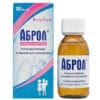
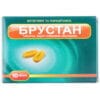
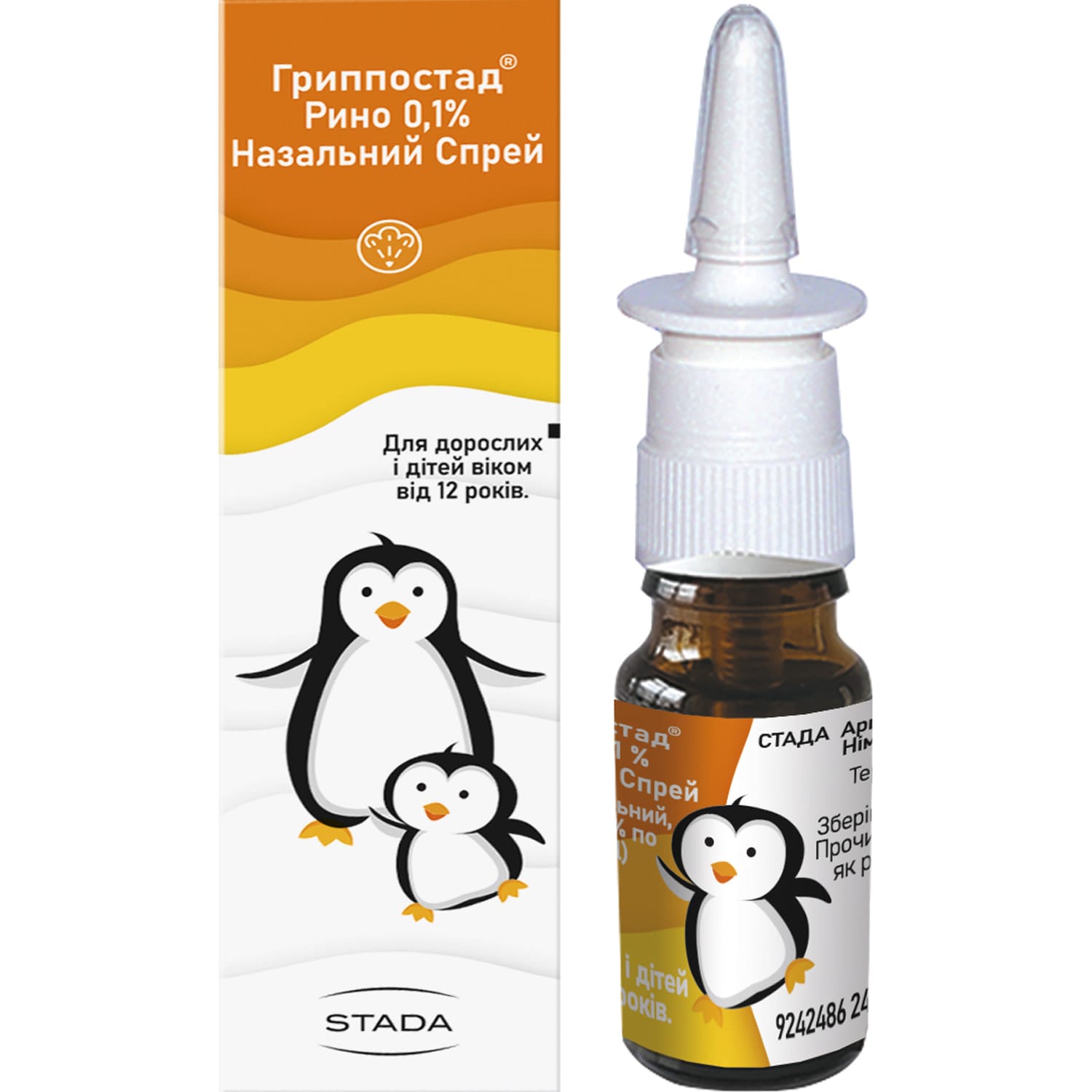
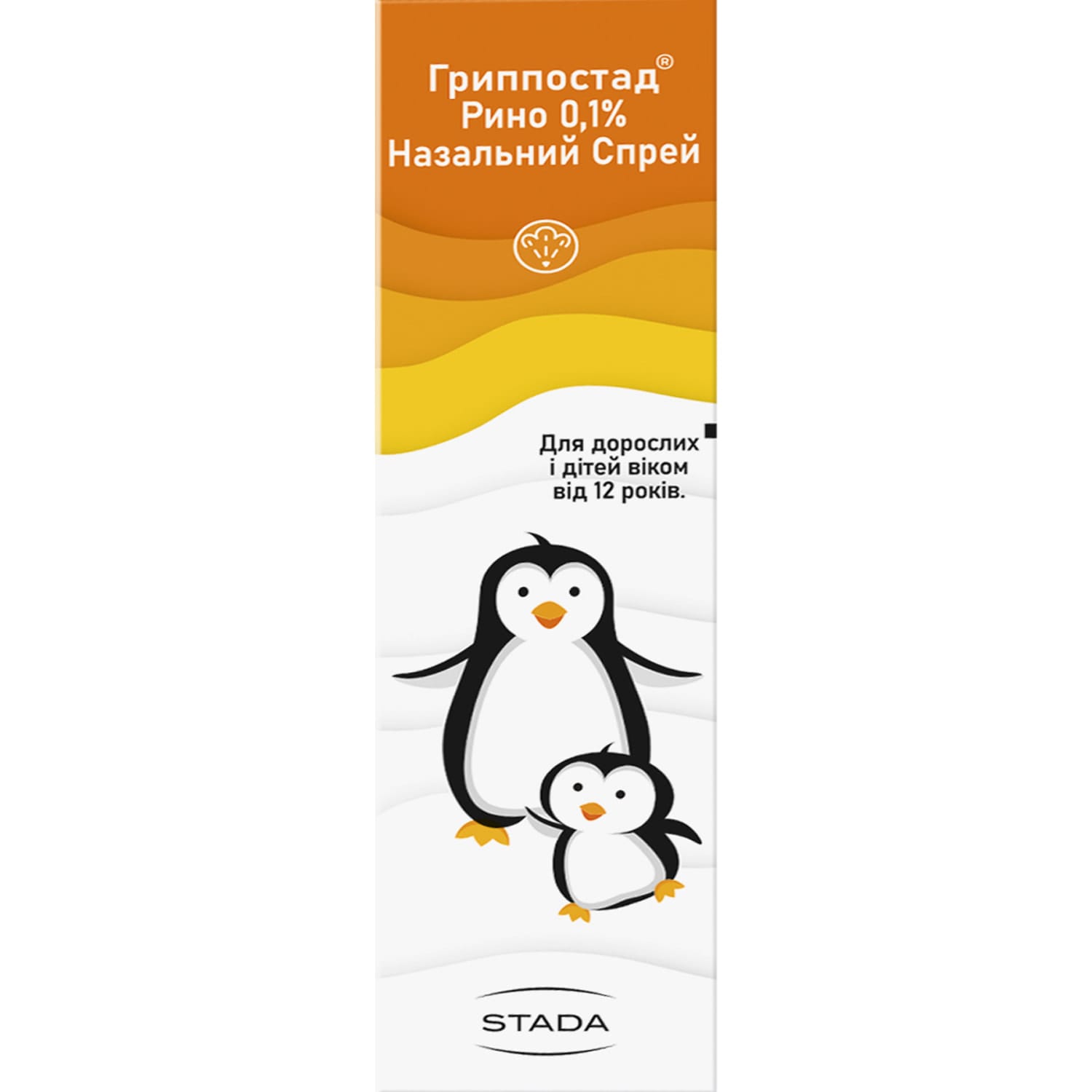

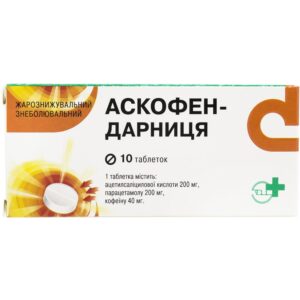
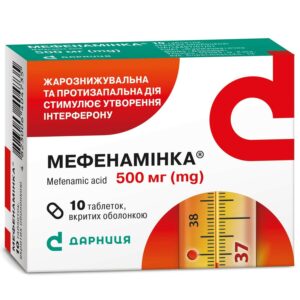
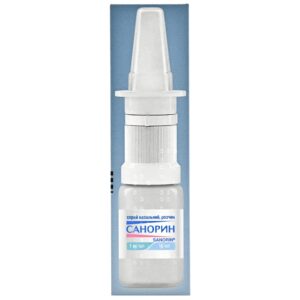
Reviews
There are no reviews yet.